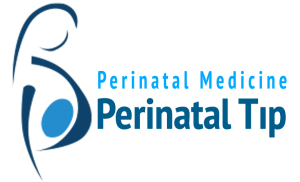
What is Perinatology? (High-Risk Pregnancy)
 Perinatology is a discipline related to risk assessment of patients before, during and after pregnancy, feto-maternal; that is, prenatal diagnosis of many fetal-mother-related diseases, making treatment-follow-up plans and applying invasive interventions if necessary, completing the treatments during pregnancy, delivery and postpartum in risky or problematic pregnancies.
Perinatology is a discipline related to risk assessment of patients before, during and after pregnancy, feto-maternal; that is, prenatal diagnosis of many fetal-mother-related diseases, making treatment-follow-up plans and applying invasive interventions if necessary, completing the treatments during pregnancy, delivery and postpartum in risky or problematic pregnancies.
In the Perinatology department we serve:
• Combined screening test and early fetal anomaly screening at 11-14 weeks of gestation
• Ultrasonography for fetal anomaly screening at 15-23 weeks of gestation
• Fetal growth and development evaluation and late fetal anomaly screening at 28-32 weeks of gestation
• Diagnosis and management of structural fetal anomalies
• Diagnosis and management of infectious diseases
• Diagnosis and management of genetic diseases
• Diagnostic interventional procedures (amniocentesis, cordocentesis, CVS)
• Erythrocyte Alloimmunization (Rh incompatibility), Diagnosis and treatment of fetal anemia (Transfusion)
• Medical diseases of pregnancy (hypertensive diseases (HT, preeclampsia), diabetes, liver, kidney and blood diseases, etc.)
• Threat of miscarriage, cervical incompetence, threat of preterm birth, premature rupture of membranes (the rupture of the amniotic sac before the birth begins and the waters begin to flow)
• Diagnosis, follow-up and management of fetal growth and development problems (Doppler USG)
• Follow-up and management of multiple pregnancies and their problems
• Diagnosis and management of placenta previa (the baby’s partner called placenta is anterior, that is, the birth canal is closed) and invasion anomalies
• Diagnosis and management of problems (bleeding, etc.) during and after birth are carried out.